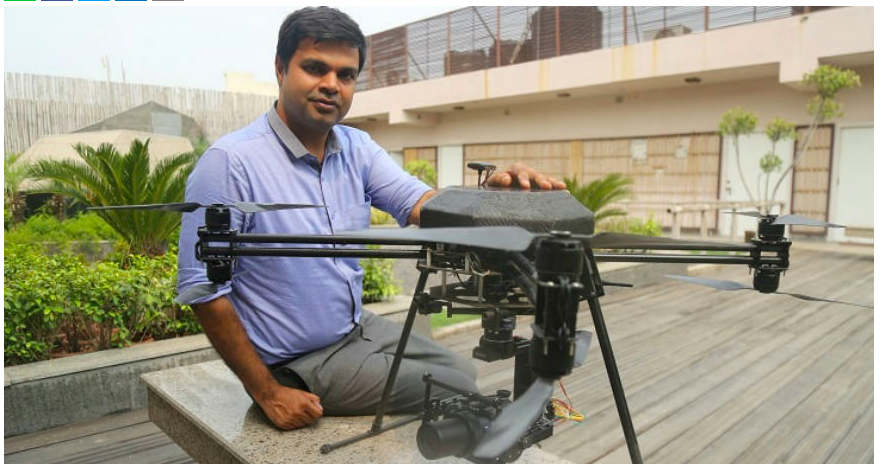Bengaluru, NFAPost: Drone startups in India supported by Central government ministries like Civil Aviation and Agriculture along with state government are fighting a battle against the invasion of desert locusts
Omnipresent Robot, a startup founded by Akash Sinha, is battling the invasion of desert locusts, which India has been battling since April as it already affected the farm economy in western and central India.
Large and aggressive swarms of these crop-devouring short-horned insects have invaded more than two dozen districts covering more than 50,000 hectares of desert areas of western India. Rajasthan, Madhya Pradesh and Gujarat are the worst affected states.
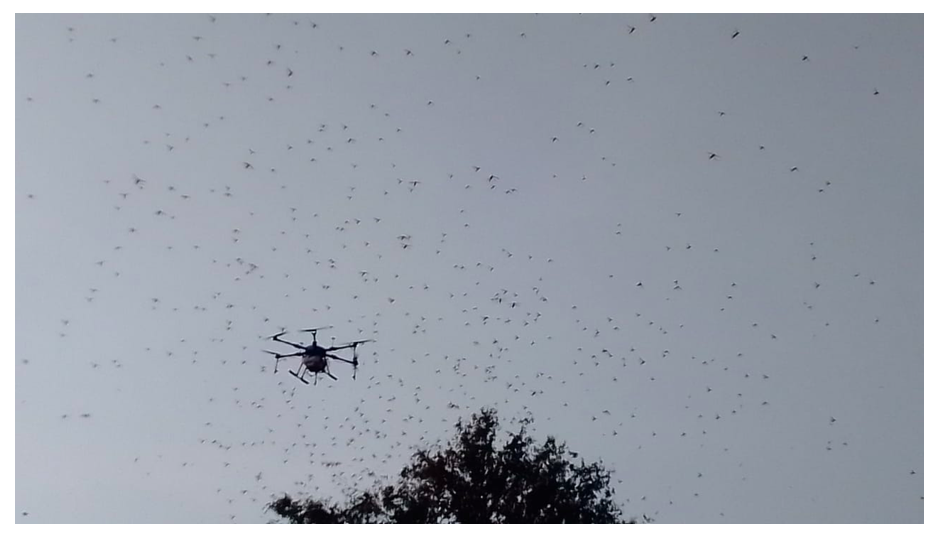
In an interaction with NFAPost, Omnipresent Robot Tech Pvt Ltd Founder and Chief Executive Officer Aakash Sinha said the company got the contract from the Ministry of Agriculture to use drones for fighting locust.
“Every evening we monitor where the locust settles down for rest, we drive to the location and spray insecticides with our drones, early in the morning to kill the locust. Our drones carry a 10-litre spray tank and cover about 1-hectare area per flight,” said Omnipresent Robot Tech Pvt Ltd Founder and Chief Executive Officer Aakash Sinha.
These locusts are extremely damaging because they come in large numbers, to the extent that they can cover thousands of square kilometres. The swarm itself consists of millions of locusts per square kilometre and they can migrate over long distances per day.
Omnipresent Robot Tech Pvt Ltd Founder and Chief Executive Officer Aakash Sinha said each drone can cover about 10 hectares every day saving damage to about 10 tonnes of food grains in a day.
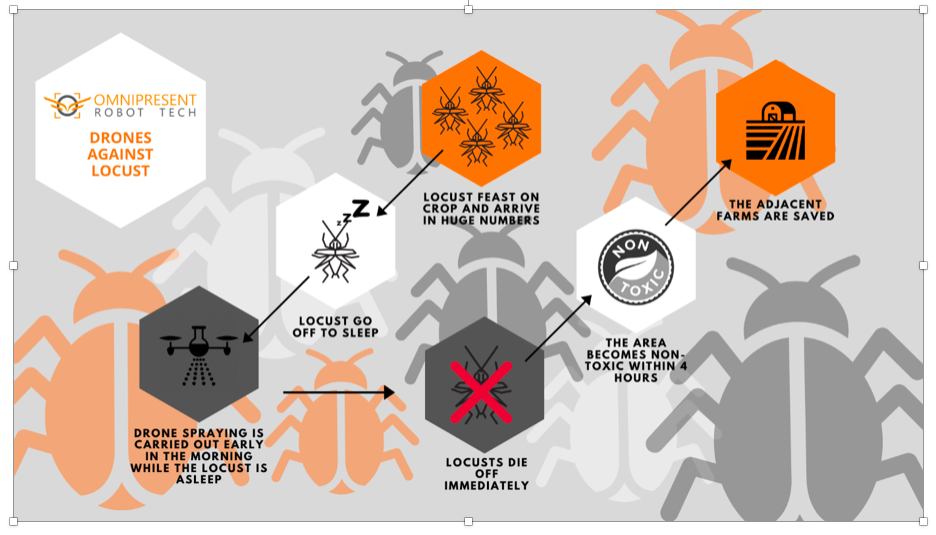
“The challenge is to find where majority of locust is settled and kill them while they are asleep. Our team typically starts flights around 5am every morning,” said Omnipresent Robot Tech Pvt Ltd Founder and Chief Executive Officer Aakash Sinha.
Besides the approval from respective state governments, Omnipresent Robot Tech also got formal permissions from Director General of Civil Aviation (GCA) for using the drones for locust problem in record time given the seriousness of the problem.
Since these desert locusts are millions in numbers and spread over such a large area, they damage anything that comes in their way—any green vegetation or crops. A swarm covering just a square kilometre could damage up to a 100 tonne of crops daily. These are estimates based on analysis and studies, researchers and organisations like the FAO have carried out over time.
Omnipresent Robot Tech Pvt Ltd Founder and Chief Executive Officer Aakash Sinha said locusts moved on Sunday further from Uttar Pradesh’s Bulandshahr to Kasganj, Oraiyya, Farrukhabad, and Hathras after the operation to control over various parts of the National Capital Region (NCR).
He also said now the govt is considering proposals this sector which would allow night flying and drones with petrol engine and heavy drones up to 50kg in weight. Omnipresent Robot Tech Pvt Ltd Founder and Chief Executive Officer Aakash Sinha also lauded the commendable job on how the Ministry of Agriculture and DGCA have acted quickly to utilise the technology to address an issue of paramount national importance.
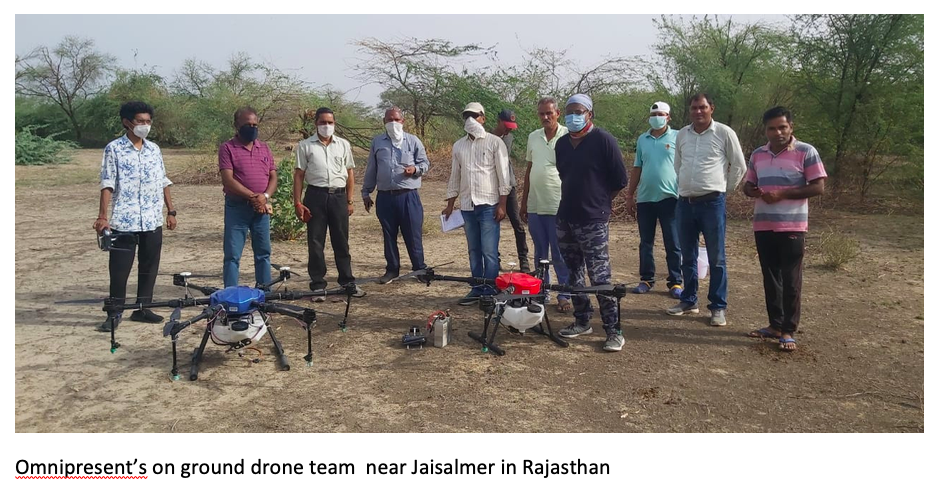
The locusts have not so far impacted food security much but LWO has warned that the Kharif crops, especially maize and cotton, are likely to be impacted if the locust threats from the Indian Ocean and their breeding sites in India are not controlled. LWO teams in Rajasthan were trying to control fresh swarms coming in from Pakistan and Iran.
K L Gurjar, the deputy director of Union agriculture ministry’s Locust Warning Organisation (LWO), said they could not control the entire swarms and they flew again early on Sunday morning. “We have arranged for drones, fire brigades, apart from seven teams with sprayer mounted on vehicles. We are trying our best. Control operations will begin again tonight [Sunday]. Teams are moving with the swarms,” said Gurjar. He also said control operations have been strengthened at the border to ensure swarms do not come in.
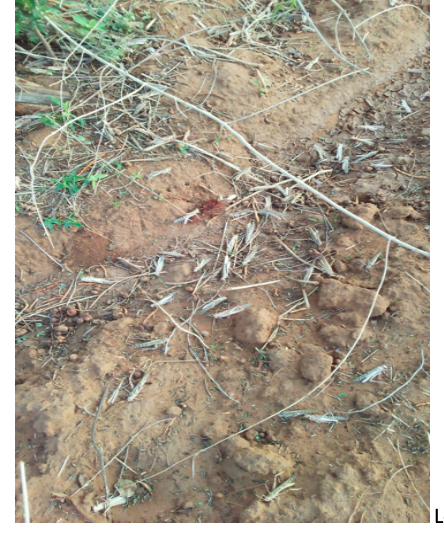
Omnipresent has been awarded a contract by the ministry of agriculture to use drones for fighting locust. The locusts have not so far impacted food security much but LWO has warned that the Kharif crops, especially maize and cotton, are likely to be impacted if the locust threats from the Indian Ocean and their breeding sites in India are not controlled.
K L Gurjar, the deputy director of Union agriculture ministry’s Locust Warning Organisation (LWO), said they could not control the entire swarms and they flew again early on Sunday morning. “We have arranged for drones, fire brigades, apart from seven teams with sprayer mounted on vehicles. We are trying our best. Control operations will begin again tonight [Sunday]. Teams are moving with the swarms,” said KL Gurjar.
The UN’s Food and Agriculture Organisation (FAO) on Saturday warned a general northerly movement of swarms will occur even as control operations continue. Some of the swarms in Kenya were expected to transit through South Sudan to reach the summer breeding areas of Sudan, where it has rained. If the rain is not enough, the swarms could continue to Chad and spread westwards across the Sahel in West Africa. The swarms in Somalia are likely to migrate across the Indian Ocean to the summer breeding areas along the India-Pakistan border.
India Meteorological Department director-general M Mohapatra last week said winds were moving from the direction of the Horn of Africa towards India. “The wind direction is south-westerly during monsoon. I will not be able to comment on whether they will carry these swarms with them,” said M Mohapatra.


